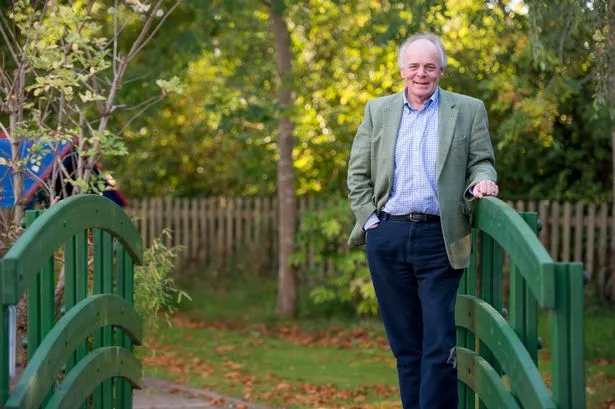
Savills reports significant profit growth but shares decline amid investment management struggles
Savills has reported a significant increase in profits, despite its investment management arm experiencing a decline due to high interest rates. In its latest financial results, the FTSE 250-listed company announced a 7% rise in revenue to £2.4bn for the year ended December 31, up from £2.24bn in 2023, as reported by City AM. Underlying profit before tax surged by 38% to £130.4m, while reported profit before tax jumped 59% to £88.3m. Underlying basic earnings per share also saw a 31% increase to 66.2p. However, Savills' investment management arm saw an 11% drop in revenue, which the company attributed to valuation adjustments during the year, stating that "the raising and deployment of capital inevitably more challenging during a period of interest rate and price volatility." Despite the positive financial results, Savills' share price plummeted by over 5% this morning, continuing a month-long decline. The share price has fallen by more than 15% since mid-February. Analysts at Peel Hunt remain optimistic about Savills' prospects, stating that the company "remains a quality business" and is "poised for a healthy recovery as commercial transition activity returns to normal." They maintained their target price of 1,100p and 'Add' rating, saying "We continue to like the business model and believe it remains an attractive investment," Mark Ridley, Chief Executive of Savills, commented: "Savills improved performance in 2024 reflects the robust earnings provided by our less transactional businesses together with the effect of our inherent operating leverage in the early recovery of transactional markets." "Most markets were in recovery as we entered 2025 and, whilst uncertainty continues, there remains the expectation of reductions in the cost of capital during the year."

The Gym Group's revenue and profit rise as growth plan gathers pace
The Gym Group has reported a surge in revenue and profit, attributing the success to its 'Next Chapter' growth plan initiated in 2023. . The London-based company, boasting over 250 locations across the UK, posted a pre-tax profit of £3.6m for the year ending December 31, 2024, a significant turnaround from the pre-tax loss of £5.5m recorded in 2023, as reported by City AM. Year on year, the firm's revenue saw an 11 per cent increase, climbing to £226.3m in 2024 from £204m in 2023. Following the £5.5m pretax loss in 2023, The Gym Group launched its 'Next Chapter' growth plan, aimed at enhancing returns from its estate, accelerating the roll-out of new sites, and identifying additional revenue streams. In 2024, the company opened 12 new sites, hitting the top end of guidance, with plans to launch another 14-16 this year. The return on The Gym Group's estate increased by four percentage points year on year to 25 per cent, achieved through "higher yield, more cost-effective promotion, better targeted customer acquisition and early progress on retention." "This strong set of results reflects good progress against the strategic objectives set out in our Next Chapter growth plan," the company stated. "We believe there is still more benefit to come from the Next Chapter growth plan, giving us the confidence to increase guidance again to the top end of the recently revised analyst forecast range for FY25," said Will Orr, CEO of The Gym Group. The company reported that performance in 2025 has "remained strong" with an 8% boost in revenue year on year, a 4% rise in membership numbers, and another 4% increase in yield. "We have seen excellent momentum to date with increased membership, revenue and profit; and our market-leading proposition is more resonant than ever, in a sector that is growing.

Jet2 expands services out of Birmingham Airport
Airline operator and holiday firm Jet2 has announced expansion plans at Birmingham Airport. The move will bolster its winter sun and city breaks programme for 2025/26 from the Solihull transport hub. The expansion has seen the operator bring forward the start of the season to Porto, Portugal's second largest city, to mid-February 2026 to coincide with the school half-term holidays. It said the move had come in response to more customers looking for cultural and sightseeing breaks. Email newsletters BusinessLive is your home for business news from across the West Midlands including Birmingham, the Black Country, Solihull, Coventry and Staffordshire. Click through here to sign up for our email newsletter and also view the broad range of other bulletins we offer including weekly sector-specific updates. We will also send out 'Breaking News' emails for any stories which must be seen right away. LinkedIn For all the latest stories, views and polls, follow our BusinessLive West Midlands LinkedIn page here. Jet2 has also expanded its winter sun programme to the Alicante, Canary Islands, Cyprus, Madeira and Turkey. The other existing services being expanded out of Birmingham Airport are Antalya, Fuerteventura, Gran Canaria, Lanzarote, Paphos and Tenerife. Tom Screen, aviation director of Birmingham Airport, said: "We're delighted that Jet2 has directly responded to our customers' needs and expanded its programme for winter 2025/26. "The new increased services offer even more choice for our customers looking to jet off during the winter period whether that's for a much-needed dose of sunshine or a cultural city break." Jet2 chief executive Steve Heapy said: "We are seeing continued demand for our award-winning flights and holidays and with winter 2025/26 looking so popular we are in the position to respond with a massively expanded programme from Birmingham Airport. "As well as extending the season to Porto, we have also put additional capacity on sale to popular winter sun destinations, meaning we are giving customers even more choice and flexibility when it comes to getting away next winter.

Children's Hospice South West founder and chief executive dies
The founder of a hospice charity providing care to babies and children across the West of England has died. Eddie Farwell co-founded Children's Hospice South West (CHSW) with his late wife Jill in 1991 from the laundry room of their house in North Devon to support families whose children have life-limiting conditions. The couple's two eldest children, Katie and Tom, had both been diagnosed with a rare degenerative genetic disorder that meant they did not live to reach adulthood. At the time, the family’s only opportunity for respite was a hospice in Oxford, so the duo launched a £1m fundraising appeal to set up their own in Barnstaple in 1995. Huge demand for its services led to an appeal to build Charlton Farm, near Bristol, which opened in 2007 and was followed by Little Harbour in St Austell in 2011. Mr Farwell was awarded an MBE for his services to charity and children’s palliative care in 2014. He announced his retirement as the charity's chief executive last year, but was diagnosed with motor neurone disease just a few months later. He died of the neurological disorder on Thursday, March 27. He is survived by his daughter Lizzy. She said: "“My Dad was a kind, thoughtful, brave person always and being able to watch what he had achieved both through Children's Hospice South West and sharing wonderful moments as dad and daughter I will never forget. "Something I have always admired about my dad is his ability to inspire others, make people feel at ease and to warm their hearts in such a positive way, whether he has known them for five minutes or for 10 years. "Dad’s diagnosis was a huge shock, but being with him, caring for him and supporting him through his diagnosis was an honour, always maintaining his sense of humour and I wouldn’t have had it any other way. "I was with him right to the very end. He was so incredibly brave and I have lost a huge part of me in dad and miss him so much already. I take comfort from the fact that he is now at peace with my beautiful Mum, brother and sister.” Children’s Hospice South West’s incoming chief executive Phil Morris, has pledged to preserve "Eddie's legacy" and continue "advancing his mission". He said: "The heartfelt response to this news is a testament to the remarkable gift that Eddie bestowed upon our region. "It was an honour to meet him to hear his story and advice. Meeting his daughter Lizzy has further deepened my appreciation for the incredible history of our charity." Tricia Morris, CHSW chair of trustees, added: "Eddie was a remarkable man. Words do not adequately describe the legacy he leaves. In his 20 years as chief executive he has crafted a very special, caring and supportive organisation."

Nissan appoints new global CEO after falling sales and Honda talks collapse
Nissan has announced a shake-up of its global leadership after a period of disappointing sales and the collapse of crucial merger talks with fellow car manufacturer Honda. Chief executive Makoto Uchida is stepping down to be replaced by Ivan Espinosa, currently the company’s chief planning officer, on April 1. Other changes at the company’s leadership were also announced. Speculation about Mr Uchida’s future had been rife in recent weeks after the collapse of talks with Japanese rival Honda Motor Co that had aimed to set up a joint holding company to integrate its businesses. Mr Uchida had said the focus of the talks had changed to making Nissan into a Honda subsidiary, which he deemed unacceptable. The firm, which has a major plant at Sunderland employing around 6,000 people, is projecting a loss of 80bn yen (£421m) for the full year to the end of this month. It has announced a global cuts programme that will see thousands of jobs cut and some plants closed. Sunderland appears to have escaped the worst of those cuts, however, with a shift on one production line closed but no job losses announced. New boss Ivan Espinosa, who joined Nissan in 2003, has spent much of his Nissan career in Mexico and Southeast Asia, overseeing product planning, including the drive towards electric vehicles. He said: “I sincerely believe that Nissan has so much more potential than what we’re seeing today.” He stressed his love for Nissan, noting he has developed a deep understanding of what makes the company unique and valuable. Nissan said the company leadership needs to be “renewed” to achieve long-term growth. Mr Uchida, who remains as a director, expressed confidence in Mr Espinosa as “a real car guy”, and stressed he is handing over the baton of leadership to better unify company ranks. “I am confident that Nissan will definitely make a comeback,” he said, appearing at a hastily called news conference with Mr Espinosa. Nissan’s plant at Sunderland has been at the forefront of the company’s transition to electric vehicle production and has benefited from about £2bn in investment through the EV36zero initiative. Earlier this year Jatco, a transmission supplier with a majority stake held by Nissan, unveiled plans to establish 180 jobs at the International Advanced Manufacturing Park located nearby. Politicians including North East mayor Kim McGuinness, Chancellor Rachel Reeves and Business Secretary Jonathan Reynolds have all hailed the importance of the plant to the North East and wider UK economy in recent weeks.

FAW post strong financials despite failure to qualify for Euro 24
The Football Association of Wales (FAW) has posted its best ever financial results for a trading year in which the senior men’s team failed to qualify for a major tournament. For its financial year to end of June, 2024 (FY 24) it posted revenues of £32.36m. In 2022-23 its record revenues of £36.18m were bolstered by Wales playing in the Qatar World Cup. However, last year its profit margin of 67% was up from 58% a year earlier. Revenues came from a variety of sources with TV and radio contracts the biggest single contributor with £8.18m, followed by £6.86m from governing bodies and match income of £5.1m. At year end the FAW employed 164 compared to 126 a year earlier. While depending on wins and tournament progression, Wales would have secured around £8m from participation in last summer’s Euro 24 tournament. However, after expenses, including logistics and payments to squad players, it would have left the FAW with a profit of around £2.6m. In FY 2024 the FAW posted operating losses of £1.29m, up from a deficit of £715,243 a year earlier. This was predominantly due to reinvestment into grassroots football. However, it was able to offset operational losses from a strong performance in its investment portfolio and an unrealised gain for the year of £1.4m. After accounting for interest, dividends and the gain on fixed asset investments, the FAW’s profit after tax was £1.1m (compared to £0.2m in FY23). At financial year end its investment portfolio stood at £18.3m, but has since (as of the end of December 2024) risen to £19.14m. Highlights during the year, including: Chief financial officer, John Young said: “The positive results for FY 24 reflect an association rooted in solid foundations, with good risk management but with the agility to be able to adjust where necessary. Not participating in the men’s Euro 2024 or benefiting from the additional funding that would have been generated, did not hinder the organisation’s ability to continue to progress both on and off the field. "Supporting the women’s national team to qualify for its first major tournament has been a feature of FY 25 on the field. Off the field, a comprehensive review of systems and processes throughout the business has positioned us well to invest further in growing the game in Wales.” The FAW’s balance sheet remains strong with reserves of £15.8m at the end of FY 24. Chair of its finance, audit and risk committee, Carol Bell, said: “The strength of FAW’s financial performance in a year when we did not benefit from participation in a major tournament reflects our resilience, access to diverse funding sources and the benefit of holding financial reserves at a time of higher interest rates. This has enabled FAW to continue investing in grassroots development to create a sustainable football association for everyone while supporting our international teams to perform.” The FAW’s internal plan for change – Together Stronger for the Future – was recently approved by FAW Council and marks a significant step forward for the association following extensive consultation with stakeholders around major governance changes. With over 30 recommendations, the plan for change has gained backing from the FAW Council, which the governing body said ensures that Welsh football continues to evolve into a world-class organisation. FAW chief executive Noel Mooney said: “We are delivering the strategy for Welsh football every day with passion, determination and the desire to see the FAW become the world’s best football association. We do this in an ambitious but efficient way, devoting the resources required to deliver great international results. “With both our women’s and men’s teams now playing in the top leagues of European football, Welsh football is firmly placed on the world map while we invest to revolutionise and grow grassroots football at all levels. Since the end of FY24, we have agreed further governance reforms which will enable us to go from strength-to-strength in the coming years.”